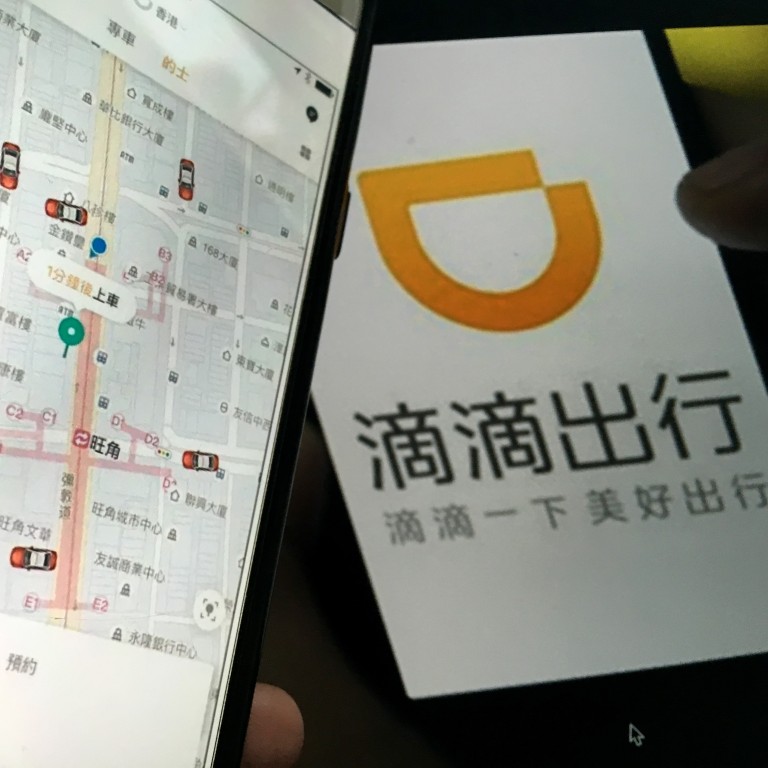
Chinese ride-hailing giant Didi Chuxing enters financial services amid profit push
- The company’s new offering includes credit and lending, wealth management and auto-financing services
Didi Chuxing, China’s largest ride-hailing platform operator, has launched nationwide financial services through its smartphone app, as the Beijing-based start-up looks to boost its profitability after years of losses.
The new offering, which Didi introduced on Wednesday, includes mutual protection and crowdfunding products for critical illnesses, credit and lending, wealth management and auto-financing services.
The launch comes after Didi conducted trials of its in-app financial services in 10 cities, including Chongqing, Zhengzhou and Foshan. The company, which has an estimated 550 million users across the mainland, established a financial services unit early last year.
Didi’s foray into financial services is part of its effort to build a “more connected ecosystem” with reliable and competitive services, according to a company spokesman in response to an inquiry on Wednesday.
Its strategy reflects how China’s large internet players are building platforms that can host multiple services, delivering greater convenience to consumers in a country that has the world’s largest smartphone market and biggest online population.
“The main goal [for Didi] is to increase profitability, as the company has failed to record a profit in the six years since it was founded,” said Sun Naiyue, an analyst at internet consultancy Analysys International. “Didi has advantages in traffic and risk analyses because it possesses massive data on drivers as well users, who are affluent and represent a quality segment of consumers for new insurance and wealth management products.”
The financial services business is expected to be one of the development priorities for Didi this year, according to Sun.
“As Didi further develops the business, mainly through partnerships with traditional and online financial companies, its operating cost will be relatively low and margins high,” she said.
The company’s move into financial services has also come amid tighter regulation of China’s ride-hailing market in the wake of the alleged rape and murder of two female passengers by their Didi drivers in May and August last year.
Didi, which posted a net loss of 4 billion yuan (US$581 million) in the first half of last year, will spend 140 million yuan to strengthen its customer service and expand the in-house team from 5,000 to 8,000 people as part of new safety measures, company founder and chief executive Cheng Wei said in a letter to employees in September.
The company, which pushed Uber Technologies out of the Chinese market in 2016, counts technology giants Apple, Tencent Holdings, Baidu and Alibaba Group Holding – the parent company of the South China Morning Post – as its shareholders.

